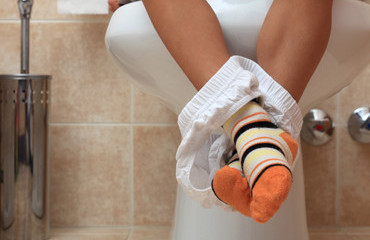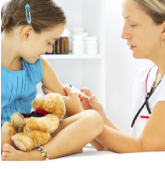
Cold and flu season
Posted November 23, 2014 | kidsBy Lisa Yang, ND
Its that time of year again, cold and flu season is rapidly approaching. There are many different prevention strategies and remedies that are available to lower the risk of getting sick and for immune support this fall and winter season.
Prevention steps:
First and most importantly, washing hands regularly is the best way to prevent germ transfer from one surface to the next. This means hands need to be washed before and after each meal, after coming home from school or playing on the playground and toys. Washing with plain soap and hot water is all you need to wash germs away. Avoid touching eyes, nose and mouth with unwashed hands.
As the cold air becomes more prevalent, keeping your child bundled in layers can be vital. Allowing your child to take off and add clothing as needed during school can help to keep the body warm. Sharing food may be a difficult to control, especially at school, but limiting touching of food and sharing of drinks and food can help to reduce spread of germs. Using clean and disposable tissues to blow noses and not coughing into hands can help to reduce respiratory droplets.
Immune support:
Vitamin D plays an important role in the body’s ability to mount the appropriate immune response. Knowing your child’s Vitamin D level can be helpful in supporting the immune system. There have also been recent studies that have shown the benefits of Vitamin D as a mediator for inflammation in respiratory health.
Probiotics play a major role in the gastrointestinal tract as a barrier against microorganisms and allergens. With a healthy gut flora, the innate host gut defense can be enhanced and intestinal inflammation that is present when gut flora in imbalanced can be reduced.
Avoiding food allergies and food sensitivities is important for immune support and inflammation regulation. Food antigens can mount immune responses which increase inflammatory markers in the body and therefore increases the overall inflammatory burden on the body.
Cold and flu remedies:
Warming socks is a very simple and effective hydrotherapy treatment for the acute onset of a cold or fever. The concept is to help your child increase body temperature and then draw that heat away for help fight the infection. If interested in learning if this treatment would work for your child, schedule a brief appointment to go over the procedure and benefits.
There are many combinations of immune modulating herbs and mushrooms. These compounds are able work together and stimulate immune activity and mount a response to pathogens.
Vitamin C and antioxidants are powerful detoxifiers and immune modulators. Including blueberries, citrus, raspberries, cherries, pomegranates into the diet can help to boost our bodies’ production of glutathione to help reduce inflammation.
Winter traveling:
Traveling, especially through airports and on airplanes may increase the risk of catching a bug. Keeping your go-to preventative remedies on hand and washing hands are the best ways to ward off pathogens. But if you know you will have long travel plans, coming in and getting a series of immune support IV pushes can help to prime and boost the immune system. Some nutrients are better absorbed through the blood. For example higher doses of vitamin C, NAC and GSH are important for immune support, reducing inflammation, and have mucolytic affects. Don’t hesitate to make and appointment and ask about these IVs.
Be prepared for the cold and flu season. If you suspect your child to be sick or need more support, go ahead and make an appointment. We are here to serve you and your family, remember healthier children lead to a healthier world!

The Scoop on Poop Part III
Posted September 19, 2014 | kidsBy Sydmarie Boyle, ND
Now that we have discussed what a healthy bowel movement should look like and all the different ways that it may go wrong, it is time to talk about different ways of testing. Assessing the bowels to determine the actual cause is important to guide treatment recommendations and follow the success of treatment. This list is far from all-inclusive but is a good place to start.
Testing:
There are multiple ways poop can be tested and several things for which to screen. One of the most common is a stool culture that will look for bacterial or yeast infections. In addition to these preliminary tests, it is routine to look for ova and parasites, otherwise known as O&Px3. Parasites are notorious for being sneaky and finding hiding places in the gut. This is why there is the x3 on the test, because typically 3 samples are collected for evaluation, increasing the chance of the parasite being found. It is important to remember that in addition to being able to hide, they have life cycles and active shedding phases; if testing is done during a dormant phase, the test will come back negative.
Many additional tests are available, and while not always part of routine testing in the allopathic field, they provide a lot of information. The function of the pancreas is important to intestinal health and how your bowels look on the other end. The pancreas produces enzymes that help break down the different types of food we eat: protein, fat, carbohydrates. We are able to test for these and overall function to see if the pancreas needs some additional support. For example, with the yellow, stinky floating stools, that could be due to a lack of lipase- a digestive enzyme for fat produced by the pancreas.
Additionally, we can assess for the overall function of the immune system in the gut. The gut is basically the outside world, on the inside of us. It gets exposed to things from the outside as we put them in our mouth. It is very important for us to have a good immune system in our gut to be able to fight off the bacteria and yeast that we eat. The hydrochloric acid (HCl) in the stomach is where most of the bugs are killed, and hydrochloric acid levels are something else that can be measured as it is important for the initial digestion of our food. If bugs survive our HCl, the intestinal lining has an immune system called immunoglobulin A (IgA) that fights for us. Having it too high means the body is working hard to fight something off, but too low may mean that the body is worn out and cannot mount the appropriate immune response when needed.
There is also a test called occult blood that looks for hidden blood in the stool. When present, this blood is dark and blends into the poop instead of fresh bright red blood easily seen. We are also able to evaluate how much inflammation is present in the small and large intestine and the current level of acidity. Additionally there is a test to determine the ability of the intestines to absorb nutrients through a test using D-xylose. This test looks for micronutrients in our red blood cells, which also gives a good indication of the body’s ability to absorb and utilize the nutrients needed.
There are many factors that play into digestion, which leads to copious potential evaluations. The liver and gallbladder are the source of bile, and as mentioned in part I and II, helps to digest fats. Also, how the body reacts to food will play a role in how a bowel movement looks. There are several different ways that the body can respond to food with a couple of options for testing including assessing for true food allergies, sensitivities and autoimmune reactions. Of course, there is also the infamous colonoscopy that allows for actual visualization of the intestines and takes samples if needed to help assess for irritable bowel syndrome, masses, polyps, bleeds, celiac, etc. Even if a bowel movement looks completely normal, it is recommended that everyone get a screening colonoscopy (or comparable exam) at the age of 50.
It is now clear how important it is to have a healthy, daily bowel movement. If there is any concern of bowel dysfunction, a primary care physician can help guide choices of which tests are most appropriate and order them. So, remember to appreciate a bowel movement and take the time to turn around and take a quick peek to make sure everything is going smoothly. Have you had your bowel movement today?








